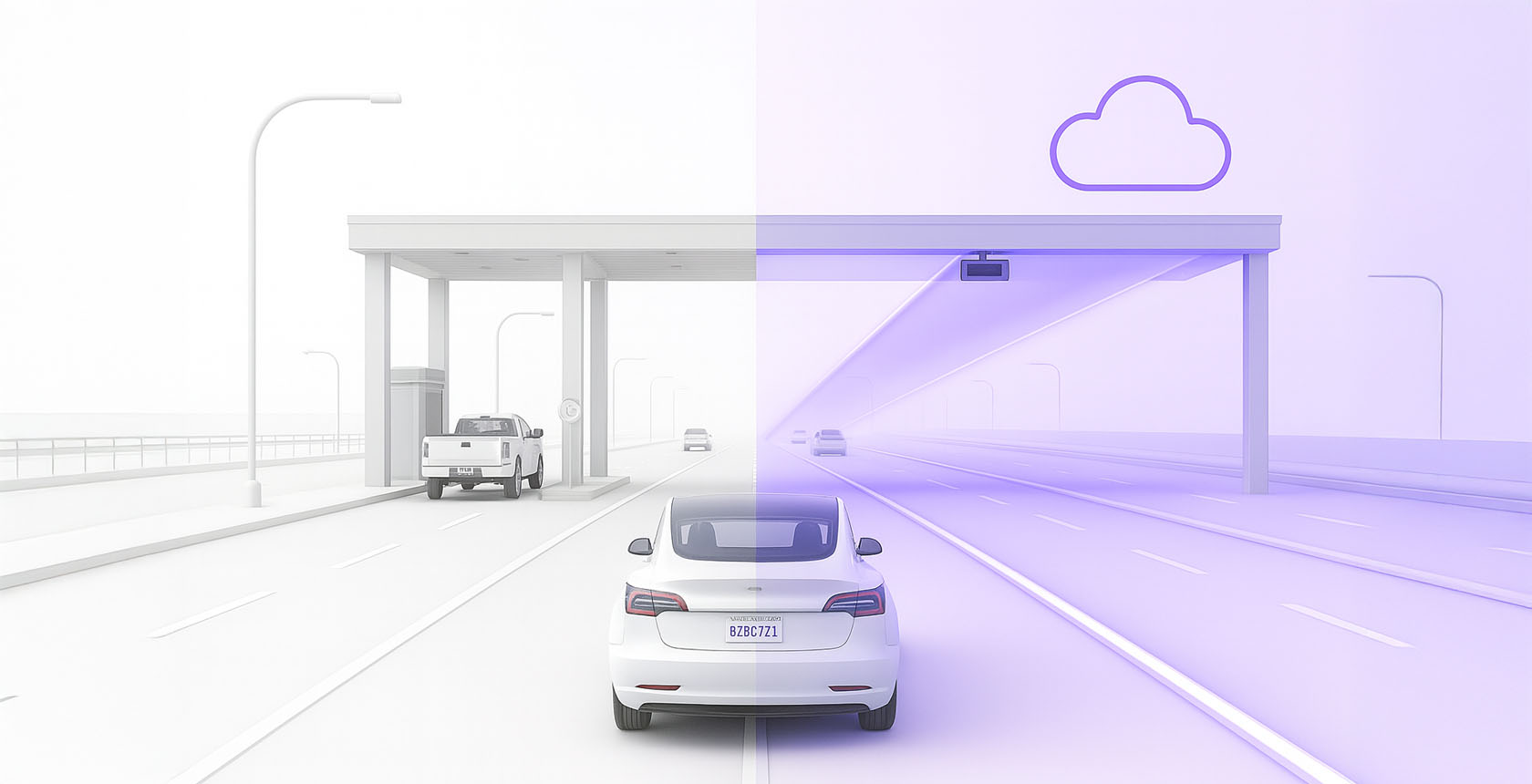When it comes to tolling and intelligent transportation systems (ITS), every second – and every plate read – counts. Operators face an ongoing balancing act: processing massive volumes of vehicle data with high accuracy, keeping lanes free-flowing, and meeting growing demands for flexibility and compliance.
But doing all that efficiently, especially across national road networks or congested city environments, is no small feat. Legacy systems struggle to keep pace with rising volumes, shifting traffic patterns, and increasingly strict data regulations.
That’s why more tolling companies and system integrators are turning to cloud-based automatic license plate recognition (ALPR) – a modern approach that streamlines operations, scales with demand, and strengthens backend intelligence without relying on outdated infrastructure.
In the sections below, we explore what cloud ALPR means in practice, where it creates tangible value, and how it addresses the core challenges faced by today’s tolling and ITS providers – from accuracy and scalability to data privacy and system integration.
The Growing Complexity of Tolling and ITS Systems
Tolling is no longer just about collecting a fee at a physical gate. From open-road tolling to dynamic congestion pricing, modern systems require the real-time processing of massive volumes of vehicle data – often across national networks. In the ITS space, plate recognition supports traffic analysis, emission zone enforcement, and smart city mobility initiatives.
At this scale, traditional on-premise ALPR solutions struggle to keep up. Hardware limitations, complicated licensing, and manual error correction all begin to add friction. And with increased traffic, the stakes are higher than ever: a single misread plate can cost revenue, prompt legal disputes, or compromise enforcement integrity.
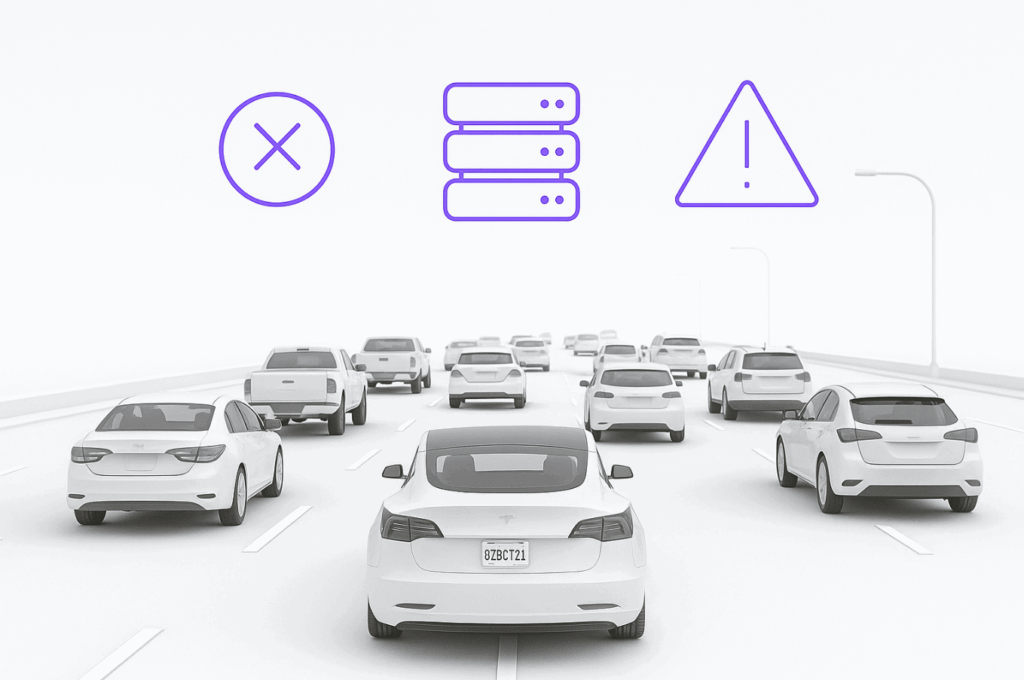
This is exactly where cloud-based ALPR brings clarity and control.
What Is Cloud ALPR – And Why Is It Better?
Cloud ALPR isn’t a different kind of plate recognition – it’s a different way of delivering and managing it.
Instead of relying solely on local infrastructure for license plate recognition, cloud ALPR platforms like Carmen® Cloud deliver the full ANPR capability – either hosted entirely in the cloud or integrated with existing systems. Recognition can be performed in the cloud or on-site, while licensing, updates, and intelligence logic are centrally managed.
This flexibility makes Carmen® Cloud suitable for both greenfield projects and retrofits, enabling tolling operators to modernize without overhauling their current architecture. Whether used as the core recognition engine or as an enhancement layer to existing ANPR systems, it provides world-class accuracy and cloud-native performance.
This architecture offers:
- High-accuracy plate recognition, powered by Carmen®’s proven ANPR engine
- Flexible processing models: full cloud, hybrid Docker, or local with cloud licensing
- Support for large-scale traffic volumes, including millions of monthly reads
- Geo-redundant hosting options for region-specific data residency and compliance
- Cloud-level availability and service continuity, without added hardware overhead
It’s not just a shift in infrastructure – it’s a smarter way to run ANPR at scale.
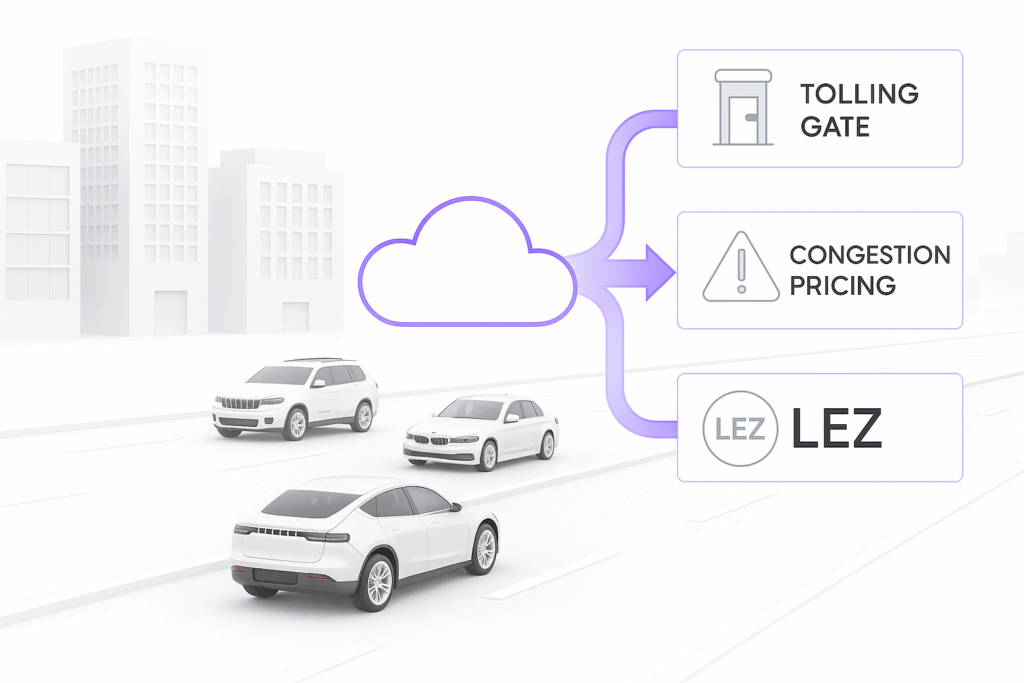
Solving Real-World Pain Points for Tolling Operators
For many tolling companies, operational challenges are as much about backend systems as roadside hardware. A few familiar issues stand out:
1. Keeping Up with Traffic Volumes
Tolling infrastructure must be ready for unpredictable peaks – holiday traffic, route diversions, new road openings. Traditionally, this meant overprovisioning hardware that might sit underused for most of the year. With cloud ALPR, however, system capacity scales automatically, matching real-world demand. Whether it’s 10,000 or 10 million license plates in a day, processing happens without bottlenecks or system strain.
2. Reducing False Positives and Misreads
Accuracy is the backbone of any tolling system. A single false positive can lead to wrongful fines, disputed charges, or lost revenue. Cloud platforms like Carmen® Cloud address this with recognition logic enhanced by contextual data – such as vehicle make, model, and color – which helps confirm and improve real-time results. By comparing these details with plate read results, the system can flag inconsistencies and correct them before billing or enforcement. This is a core capability of Carmen® Cloud, which delivers industry-leading accuracy supported by cloud-native intelligence.
In short, accuracy is no longer dependent on a single roadside camera. The cloud becomes a second layer of verification – an always-on safety net.
3. Integrating Seamlessly with Existing Infrastructure
Not every organization is ready to move fully into the cloud – and that’s okay. The strength of cloud ALPR lies in its flexibility. Some prefer a Docker-based setup, where image processing happens locally, but licensing and system updates are managed via the cloud. Others opt for fully hosted solutions on platforms like AWS, where processing, analytics, and storage happen centrally.
For U.S.-based projects, for instance, image data can be confined entirely to AWS data centers located within the United States – ensuring strict adherence to national data residency laws. The same applies for EU-based operations. Compliance isn’t just achievable – it’s built into the architecture.
Security and Data Privacy: Built Into the Design
In the tolling and transportation sector, data privacy is non-negotiable. Plate data, timestamps, GPS coordinates – these are considered sensitive personal information in many jurisdictions. Any misstep in storage, access, or transmission can have serious regulatory and reputational consequences.
Cloud ALPR platforms like Carmen® Cloud are designed with these demands in mind. Developed by Adaptive Recognition, Carmen® Cloud supports region-specific deployments that allow tolling operators to meet strict data protection requirements – without sacrificing scalability or performance.
Instead of a generic model, solutions like Carmen® Cloud ensure vehicle images and recognition data remain within predefined jurisdictions (e.g., U.S. or EU), supporting compliance with GDPR, CCPA, and other regional legislation.
- Encryption at every stage (both in transit and at rest)
- Region-specific data handling, ensuring that vehicle images stay within legal borders
- Detailed audit trails, supporting accountability and transparency
With these features in place, operators don’t have to choose between convenience and compliance—they get both.
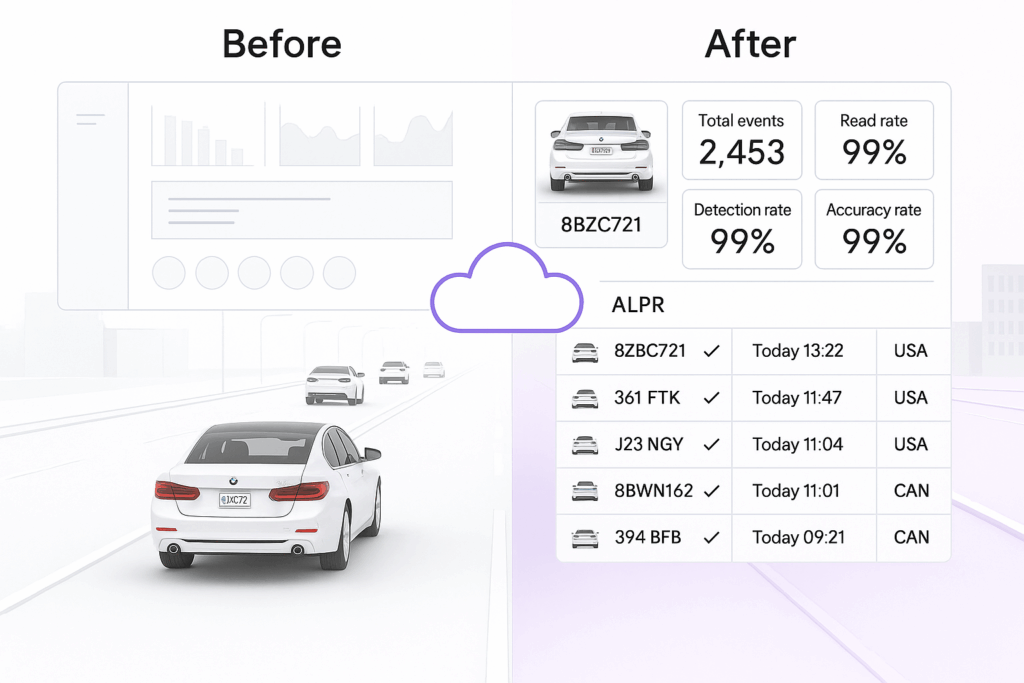
ALPR in the Bigger ITS Picture
While tolling is one of the most obvious applications of ALPR, it’s far from the only one. Cloud-based recognition systems are increasingly becoming central nodes in broader ITS networks.
Consider how ALPR integrates with:
- Traffic planning systems that analyze congestion trends and adjust signaling
- Urban mobility platforms that monitor vehicle circulation and curb usage
- Environmental enforcement zones, where only compliant vehicles can enter
- Dynamic tolling algorithms that adapt pricing based on real-time volume
By processing vehicle data in the cloud, these systems can react faster, share information across departments, and evolve over time – without massive IT overhauls.
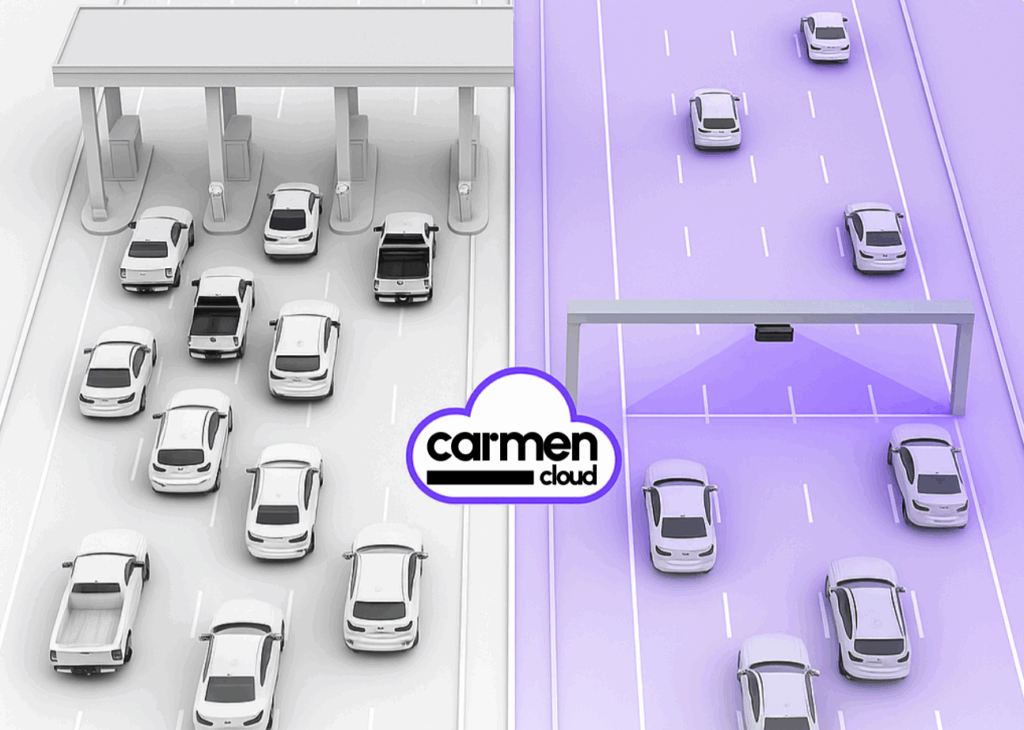
The Bottom Line: Smarter ALPR for Smarter Infrastructure
The shift to cloud-based ALPR isn’t just a technological upgrade – it’s a strategic evolution. It empowers tolling companies and ITS providers to grow without friction, to deliver more accurate results with fewer resources, and to meet the highest standards of security and compliance.
Whether you’re building a national tolling backbone or launching a city-wide smart mobility initiative, cloud ALPR can help you get there faster—and smarter.
Let’s Build It Together
If you’re exploring ALPR for a new project or considering how to scale and modernize an existing system, we’re here to help.
We offer:
- Tailored discovery workshops to explore your specific use case
- Live demos with real-time ALPR processing scenarios
- Technical guidance on architecture, integration, and deployment models
Book a session with our team and see what Carmen® Cloud – our cloud-based ALPR can do for your tolling or ITS application.

